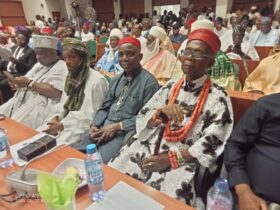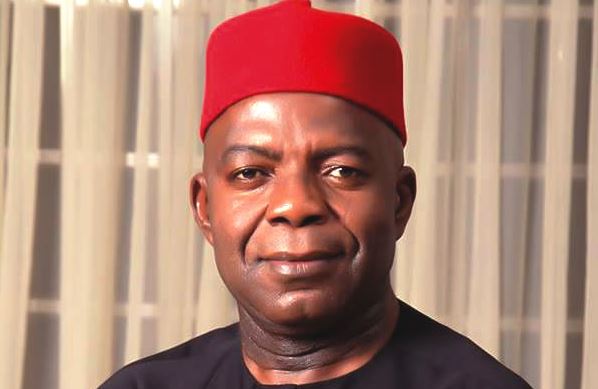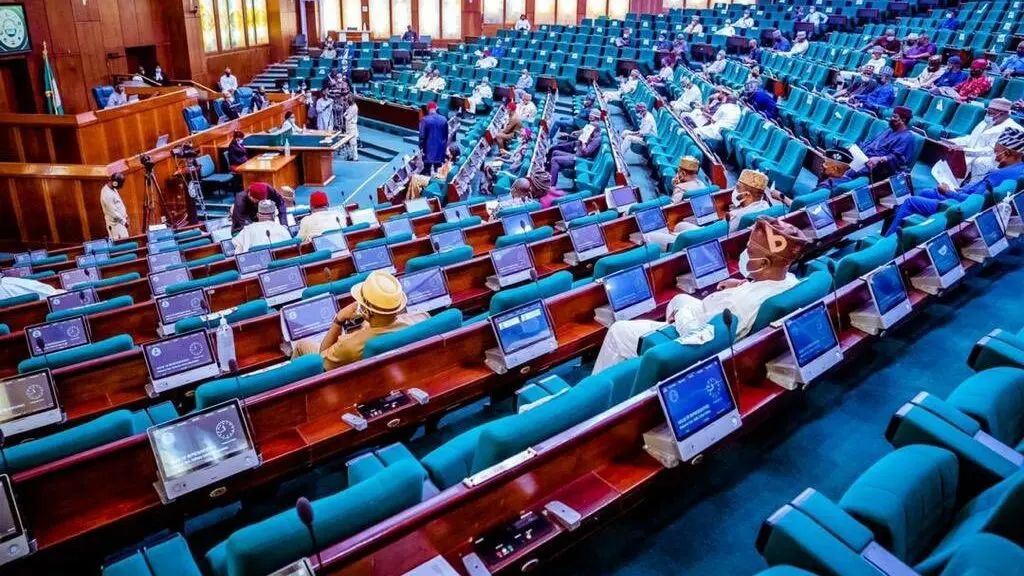After six years of grumbling by the public over bogus salaries and allowances, reprieve came on the way of the public last week’s Friday as a judge of the federal high court ordered downward review of salaries and allowances of members of the National Assembly.
The judge ,Chuka Austine Obiozor ordered that the salaries and allowances of members of National Assembly should be reduce to reflect the economic realities in the country.
Though he did not adumbrate on the countries economic realities, Nigeria is still struggling to be out of economic melt down occasioned by Covid19 pandemic, the drastic fail in its major export product oil which resulted in reductions in states’ revenue allocations that has made some states unable to pay N24, 000 minimum wage even with the majority of youths unemployed.
Justice Obiozor gave the order while delivering judgment on June 4, in the suit filed by Monday Ubani and John Nwokwu over the bogus remuneration and allowances of the members of the National Assembly.
The plaintiffs who masses would ever be grateful to had in the suit joined Attorney General of the Federation, Revenue Mobilisation Allocation and Fiscal Commission, the Senate of the Federal Republic of Nigeria, the House of Representatives of the Federal Republic of Nigerian and National Assembly Service Commission as 1st, 2nd, 3,rd 4th and 5th Defendants respectively.
The Court ruled that the 3rd , 4th and 5th Defendants ( The Senate, The House of Representatives and the National Assembly service Commission) who unilaterally fixed their salaries and allowances “have no power, close or semblance of power” to do so.
“The 3rd,4th and 5th defendants cannot determine, direct, command and/or instruct the 2nd defendant (Revenue Mobilisation Allocation and Fiscal Commission) or any person howsoever, to make, determine and/or fix their salaries, wages, remuneration, running cost or allowances,” the judge further ruled.
The judge held that “2nd defendant is the only body responsible for determining the salaries, remuneration and/or allowances of the National assembly or political office holders.”
Therefore, the court ordered , ” in line with Section 32 (b)(d) of part 1 of third schedule of the Constitution of the Federal Republic of Nigeria, 1999 as amended, that the 2nd Defendant should forthwith downward review and fix the salaries, remuneration or allowances of the 3rd and 4th Defendants to reflect the economic realities in the country.”
The judge had noted that members of the National Assembly has denied collecting the jumbo remunerations and allowances, he therefore recommended that “the Economic and Financial Crimes Commission should look at their books and if it is found that they truly collect such amount of money, they should be prosecuted.”
The Plaintiffs and one other civil society organization SERAP had separately approached the Federal High Court, Lagos challenging constitutionality of the bogus remuneration and allowances of the members of the National Assembly.
Plaintiffs’ lawyers Chief Femi Falana ( SAN), and Joseph Igwe Esq. had told the court that since the inception of democracy in Nigeria in 1999, Nigerians have been demanding to know how much their Representatives in the National Assembly collect as salaries and allowances, but the members of the National Assembly have kept that information to themselves.
They also informed the court that in March 2018 one of the Senators – Senator Shehu Sani in an interview revealed that each Senator receives the sum of N13.5 million monthly as running cost, in addition to N750,000 monthly consolidated salary and allowances.
That an online publication further revealed that each Senator is entitled to the sum of N200 million annually as constituency project allowance.
On it part, the National Assembly had filed a defence and denied ever collecting such amount of money, but they failed to disclose to the Court how much they collect.
The National assembly Service Commission also filed a defence denying being the one that approved and pay such amount of money to the members of the National Assembly. They also challenged the locus standi of the Plaintiffs to institute the action against them, and contended that the Plaintiffs have no cause of action against them. They asked the court to strike out the suit.
Earlier ,while delivering the judgment the court had considered the preliminary objections that was anchored on locus standi that is the right to sue.
The judge first dismissed preliminary objections filed by the 3rd and 4th Defendants for lacking in merit.
Justice Obiozor held that the plaintiffs have locus standi to institute the action citing the Supreme Court case of Centre for oil Pollution Watch v. NNPC.
The Court said that public spirited individuals (Tax payers) has sufficient interest in ensuring that public authorities submit to the rule of law and that no public authority has power to arbitrarily or with impunity break the law or general statute.
Justice Obiozor said his decision in this case Messrs Ubani and Nwokwu marked as Suit No FHC/LA/CS/690/ 2018 bind on a similar case filed by SERAP . Both cases was assigned to him.












